In today’s digital age, small business owners need efficient tools to streamline operations, enhance productivity, and improve customer experience. Artificial Intelligence (AI) has emerged as a game-changer, offering innovative solutions tailored to the needs of small businesses. Let’s explore the best AI tools that can empower small business owners to thrive in a competitive landscape.
Mailchimp
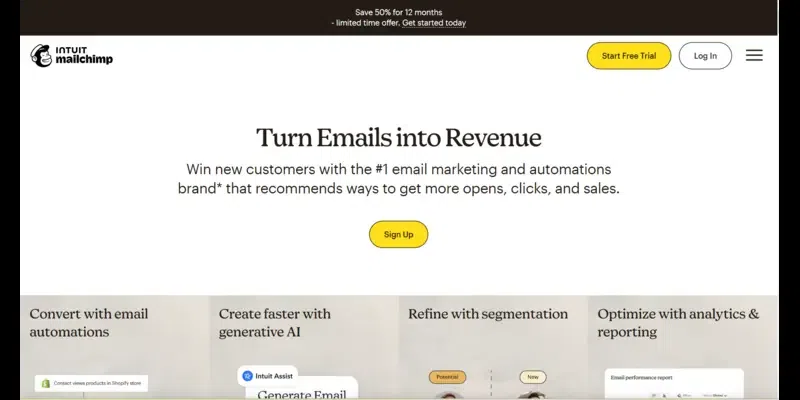
Mailchimp is a powerful marketing automation platform that enables small businesses to create, send, and analyze email campaigns. With AI-driven insights, customizable templates, and advanced segmentation, Mailchimp helps businesses engage their audience effectively.
Key Features and Capabilities
- AI-powered analytics for actionable insights into campaign performance.
- Personalization tools to create targeted email campaigns based on customer behavior.
- Integration with e-commerce platforms and social media channels for seamless marketing.
Real-world Use Cases or Examples
A small online boutique uses Mailchimp to send personalized product recommendations to customers based on their purchase history, resulting in increased sales and customer satisfaction.
Chatbot
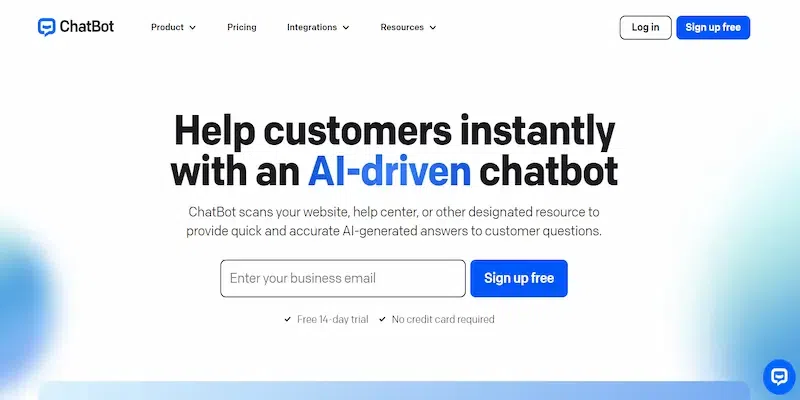
Chatbot is an AI-powered conversational agent that interacts with customers in real-time, providing instant support and assistance. Small businesses can deploy chatbots on their websites or messaging platforms to handle customer queries, schedule appointments, and automate tasks.
Key Features and Capabilities
- Natural Language Processing (NLP) for understanding and responding to customer inquiries.
- Integration with CRM systems to access customer data and personalize interactions.
- Automated responses and workflows to streamline customer support processes.
Real-world Use Cases or Examples
A small consulting firm uses a chatbot to qualify leads, schedule appointments, and provide instant answers to common questions, improving efficiency and customer satisfaction.
Trello
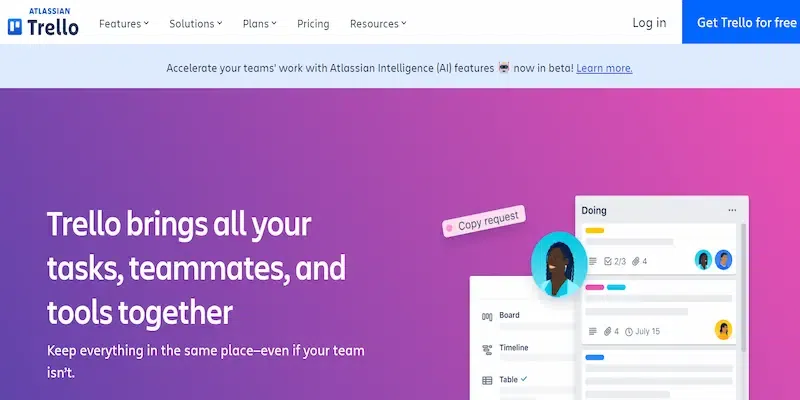
Trello is a collaborative project management tool that helps small businesses organize tasks, track progress, and collaborate with teams in real-time. With customizable boards, lists, and cards, Trello simplifies project management and boosts productivity.
Key Features and Capabilities
- Kanban-style boards for visual task management and workflow optimization.
- Collaboration tools such as comments, attachments, and due dates for effective team communication.
- Integration with other tools and apps to streamline workflows and automate tasks.
Real-world Use Cases or Examples
A small marketing agency uses Trello boards to manage client projects, assign tasks to team members, and track project milestones, resulting in improved project visibility and client satisfaction.
Salesforce Einstein
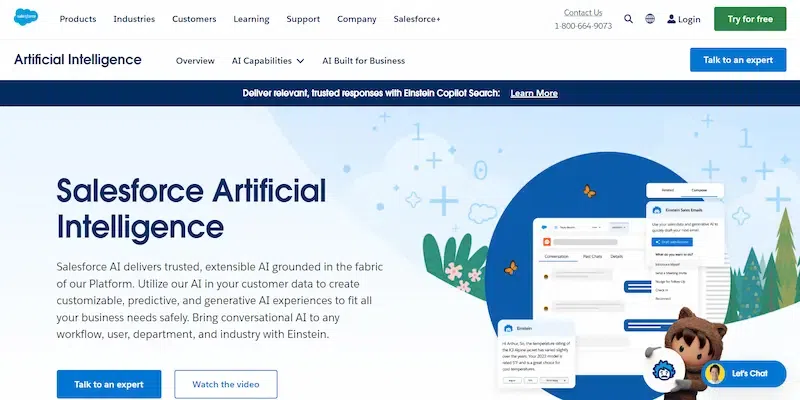
Salesforce Einstein is an AI-powered CRM platform that helps small businesses manage customer relationships, automate sales processes, and drive business growth. With predictive analytics and intelligent insights, Salesforce Einstein empowers businesses to make data-driven decisions and deliver personalized experiences.
Key Features and Capabilities
- AI-driven lead scoring and forecasting for identifying high-value opportunities.
- Predictive analytics to anticipate customer needs and preferences.
- Automated workflows and smart recommendations to streamline sales processes.
Real-world Use Cases or Examples
A small retail store uses Salesforce Einstein to track customer interactions, analyze purchase patterns, and send targeted promotions, resulting in increased customer loyalty and sales revenue.
Zoho Analytics
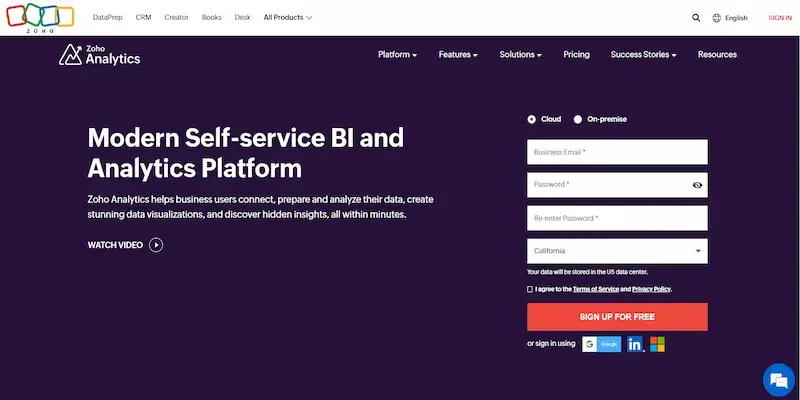
Zoho Analytics is a powerful business intelligence and analytics platform that enables small businesses to analyze data, visualize insights, and make informed decisions. With AI-driven analytics and customizable dashboards, Zoho Analytics helps businesses unlock the full potential of their data.
Key Features and Capabilities
- AI-powered data preparation and cleansing for accurate and reliable insights.
- Advanced analytics tools such as predictive modeling and trend analysis.
- Integration with various data sources and third-party applications for seamless data integration.
Real-world Use Cases or Examples
A small e-commerce store uses Zoho Analytics to analyze sales trends, track inventory levels, and forecast demand, enabling proactive decision-making and inventory optimization.
HubSpot Marketing Hub
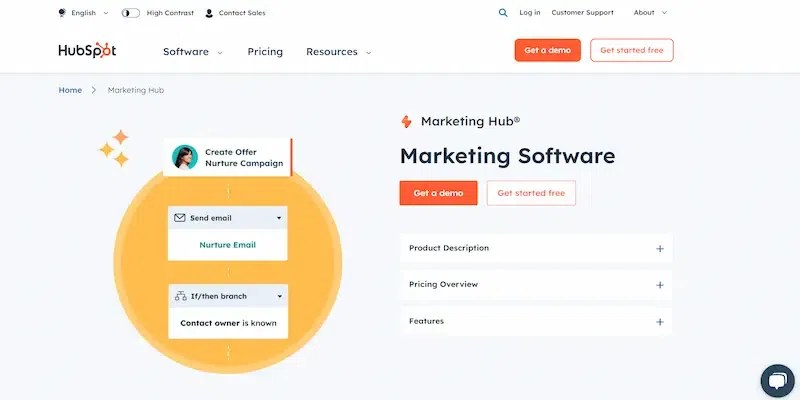
HubSpot Marketing Hub is an all-in-one marketing automation platform that helps small businesses attract, engage, and delight customers. With AI-powered tools for lead generation, email marketing, and content management, HubSpot Marketing Hub simplifies marketing efforts and drives business growth.
Key Features and Capabilities
- AI-driven lead scoring and segmentation for targeted marketing campaigns.
- Personalization tools to create tailored content and offers for different audience segments.
- Analytics and reporting features to track campaign performance and ROI.
Real-world Use Cases or Examples
A small software company uses HubSpot Marketing Hub to create targeted email campaigns, track website visitors, and nurture leads through the sales funnel, resulting in increased conversions and revenue.
QuickBooks Commerce
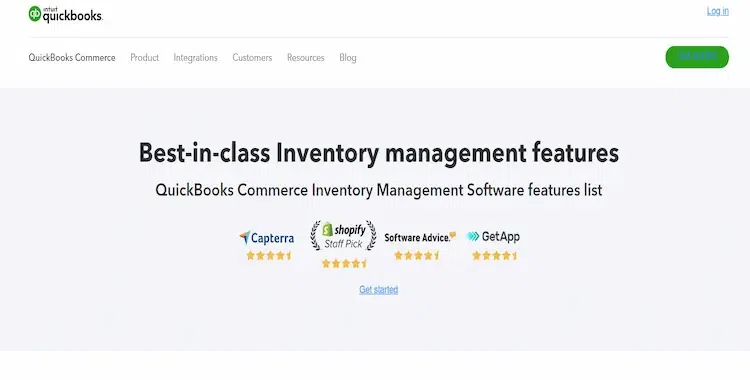
QuickBooks Commerce is an AI-powered inventory management and order fulfillment platform that helps small businesses streamline operations and optimize supply chain management. With real-time inventory tracking, demand forecasting, and multi-channel selling capabilities, QuickBooks Commerce empowers businesses to drive efficiency and profitability.
Key Features and Capabilities
- AI-driven demand forecasting and inventory optimization for efficient stock management.
- Integration with e-commerce platforms, marketplaces, and shipping carriers for seamless order fulfillment.
- Analytics and reporting tools to track sales performance and inventory trends.
Real-world Use Cases or Examples
A small e-commerce retailer uses QuickBooks Commerce to track inventory levels, manage orders across multiple sales channels, and automate shipping processes, resulting in improved inventory accuracy and order fulfillment efficiency.
Zendesk
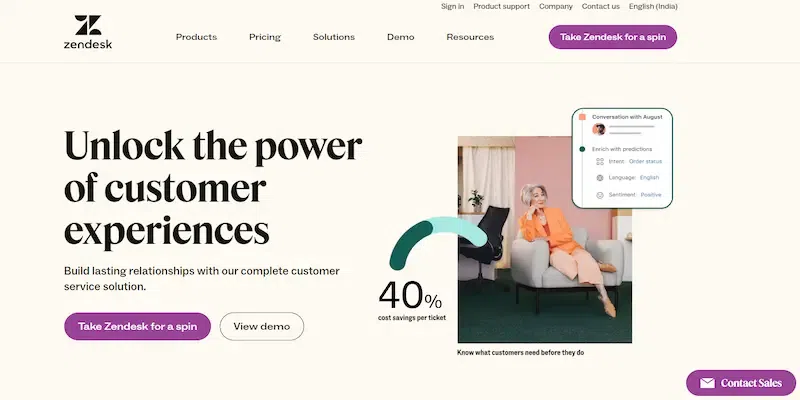
Zendesk is a cloud-based customer service and support platform that helps small businesses deliver exceptional customer experiences. With AI-powered chatbots, self-service portals, and omnichannel support capabilities, Zendesk enables businesses to provide personalized and efficient support across all touchpoints.
Key Features and Capabilities
- AI-driven chatbots for automating customer inquiries and support tickets.
- Self-service portals and knowledge bases for empowering customers to find answers on their own.
- Omnichannel support capabilities for seamless customer interactions across email, chat, phone, and social media.
Real-world Use Cases or Examples
A small SaaS company uses Zendesk to provide 24/7 customer support through AI-powered chatbots, reducing response times and improving customer satisfaction scores.
Xero
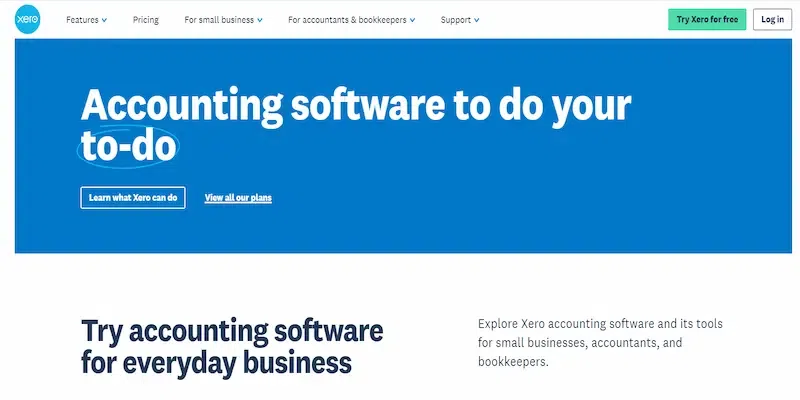
Xero is a cloud-based accounting software that helps small businesses manage finances, invoicing, and payroll. With AI-powered features for expense tracking, bank reconciliation, and financial reporting, Xero simplifies accounting processes and provides real-time visibility into business finances.
Key Features and Capabilities
- AI-driven categorization and reconciliation of bank transactions for accurate financial records.
- Automated invoicing and payment reminders to streamline cash flow management.
- Integration with third-party apps and add-ons for extended functionality and customization.
Real-world Use Cases or Examples
A small consulting firm uses Xero to track expenses, generate invoices, and reconcile bank transactions, saving time on manual accounting tasks and ensuring financial accuracy.
Google Cloud AI Platform
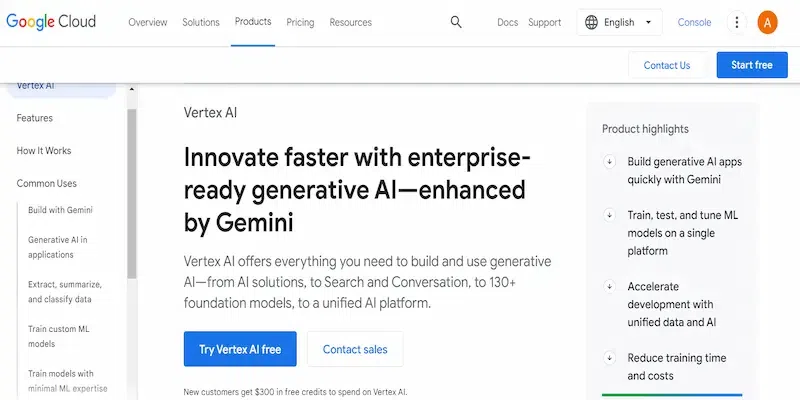
Google Cloud AI Platform is a suite of AI-powered tools and services that enables small businesses to build, train, and deploy machine learning models at scale. With pre-trained models, AutoML capabilities, and powerful APIs, Google Cloud AI Platform empowers businesses to harness the power of AI for various use cases, from predictive analytics to natural language processing.
Key Features and Capabilities
- Pre-trained models for image recognition, text analysis, and speech-to-text conversion.
- AutoML tools for building custom machine learning models without extensive coding expertise.
- Integration with Google Cloud infrastructure for scalability, security, and reliability.
Real-world Use Cases or Examples
A small e-commerce startup uses Google Cloud AI Platform to analyze customer behavior, predict purchasing trends, and personalize product recommendations, resulting in increased sales and customer satisfaction.
Conclusion
In conclusion, AI-powered tools offer tremendous value for small business owners, enabling them to automate tasks, streamline processes, and deliver exceptional customer experiences. Whether it’s marketing automation, project management, or accounting, these AI tools empower small businesses to compete effectively in today’s digital economy.
